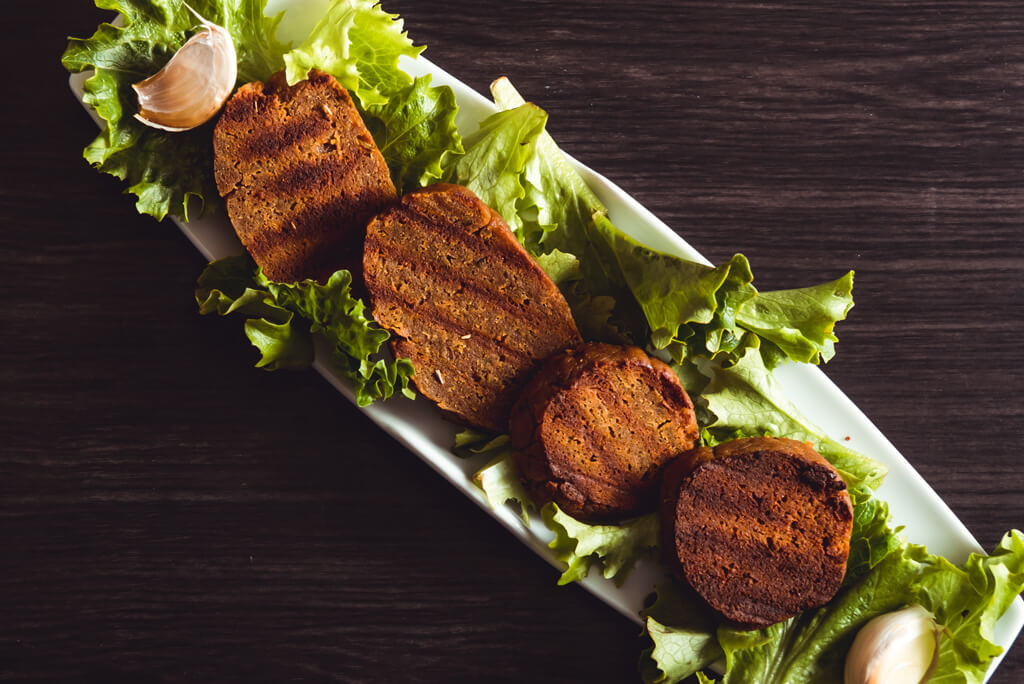In recent years there has been a movement that leans towards eating with more awareness about our food choices and their impact on our health and the environment. Part of that movement has seen people switch their regular diets for regimes that either include or exclude certain food types to various degrees.
While there are arguments for and against every diet plan, it is easy to get lost in the labyrinth of information, especially when there is so much hype around the subject. Science is constantly updating itself and it doesn’t help that there are so many ‘Captain America’ types who are on a mission to change the world and your diet to suit their ideology with biased views.
Today, we will help clear things up, so you can make informed decisions not only about what you eat but how to shop so you can make sure that you are supporting the environment and your health with your choices. As with everything, there is a middle ground.
What is a meat substitute?
In the simplest of terms, a meat substitute is any product or ingredient that you use to replace a meat ingredient in a dish or food. Sometimes, it can be as simple as switching minced meat with lentils when making a lasagne or bolognese (totally delicious).
In other cases, it is a product or ingredient that is designed to feel and taste like meat but is not meat. You can now buy meat-free burgers that are made from plant-based ingredients that taste pretty good and are quite convincing.
Examples of common ingredients found in meat substitutes include:
- Tempeh
- Tofu
- Seitan
- Quarn
- Jackfruit
- ‘Beyond’ and ‘Impossible’ branded meat (engineered)
But, are they as good for you as real meat? Well, that depends on how you characterise ‘good’. Let’s take a closer look.
Are meat substitutes really good for you?
An issue you will have with most if not all meat substitute products is that they are heavily processed. As we already know processed foods are not good for us. They include high amounts of sodium, sugar, additives and unnatural flavourings that can be detrimental to our health in the long term. They are often very calorie-dense and have a limited nutritional profile when compared to meat.
Tofu, for example, is made from soybeans. While it is high in protein and calcium, it is also high in phytoestrogen which can negatively impact our hormones. The processed nature of meat substitutes means that we may find ourselves eating more because they do not provide us with adequate nutrition, so we have to combine several foods to make up the difference.
For example, meat substitutes do not have the right balance of omega fats, they lack amino acids, and they do not have the naturally occurring minerals and vitamins found in animal fats that our bodies desperately need and get from good quality meat. And, don’t get me started on the rich natural flavour of meat fat. There is no substitute for this.
____________________________________________________________________________
Must read: Animal Fat, Friend Not Foe
____________________________________________________________________________
Having a meat substitute is ok every once in a while if you like to mix things up, but they shouldn’t be consumed daily or part of a regular diet because eating unnatural products is unhealthy.
What about the environment?
There is no denying that meat farming leaves a huge footprint as far as greenhouse gasses are concerned and this is one of the major valid arguments for adopting a conscious diet, but that doesn’t justify eating processed foods.
There is little benefit in saving the environment at the cost of your health. The key is to find a happy middle ground because not all farming practices are equal and processed food manufacturers still harm the environment.
If you want to get serious about your food choices then consider eating meat less frequently, but choose higher-quality meat products sourced from local organic farms when you do.
Organic farms are much better for the environment because the animals grow to maturity. Their longer lifespans mean that fewer animals are farmed, which reduces the farm’s carbon footprint making them an all-round good choice.
Eating organic meat does cost a bit more but the benefits of eating high-quality meat outweigh the advantages of high quantity because organic farm animals eat natural grass-fed diets that ensure that they are bursting with nutrition and flavour. Plus it frees up arable land for growing other products like the lentils you will use for the occasional bolognese, rather than growing grains just to feed livestock.
Final Thoughts
You have heard the adage that not all that glitters is gold. Well, processed meat substitutes are certainly a good example of that. It has become fashionable to assert being on a plant-based diet and those advocating it often cite health as being a primary reason, but in reality, they are exchanging a natural and healthy meat ingredient for a highly processed product that lacks flavour and nutrition.
It is hard to see what the upside is, save for a cleaner environment, but that is offset if you consume healthy, organic meat. Halal Origins prides itself on sourcing high-quality produce from local farms. All of our meat is certified as halal and is packed full of flavour and nutrition.
If you want to be more distinguished about your food choices then check out our range of organic meat products. We have the best burgers, sausages and steaks money can buy at an affordable price. We have cuts and joints for every occasion, whether you like lamb, chicken or beef, and we can deliver in time for dinner tomorrow if you order before 3 pm.
Health is wealth, so put yourself first and order from Halal Origins today.

